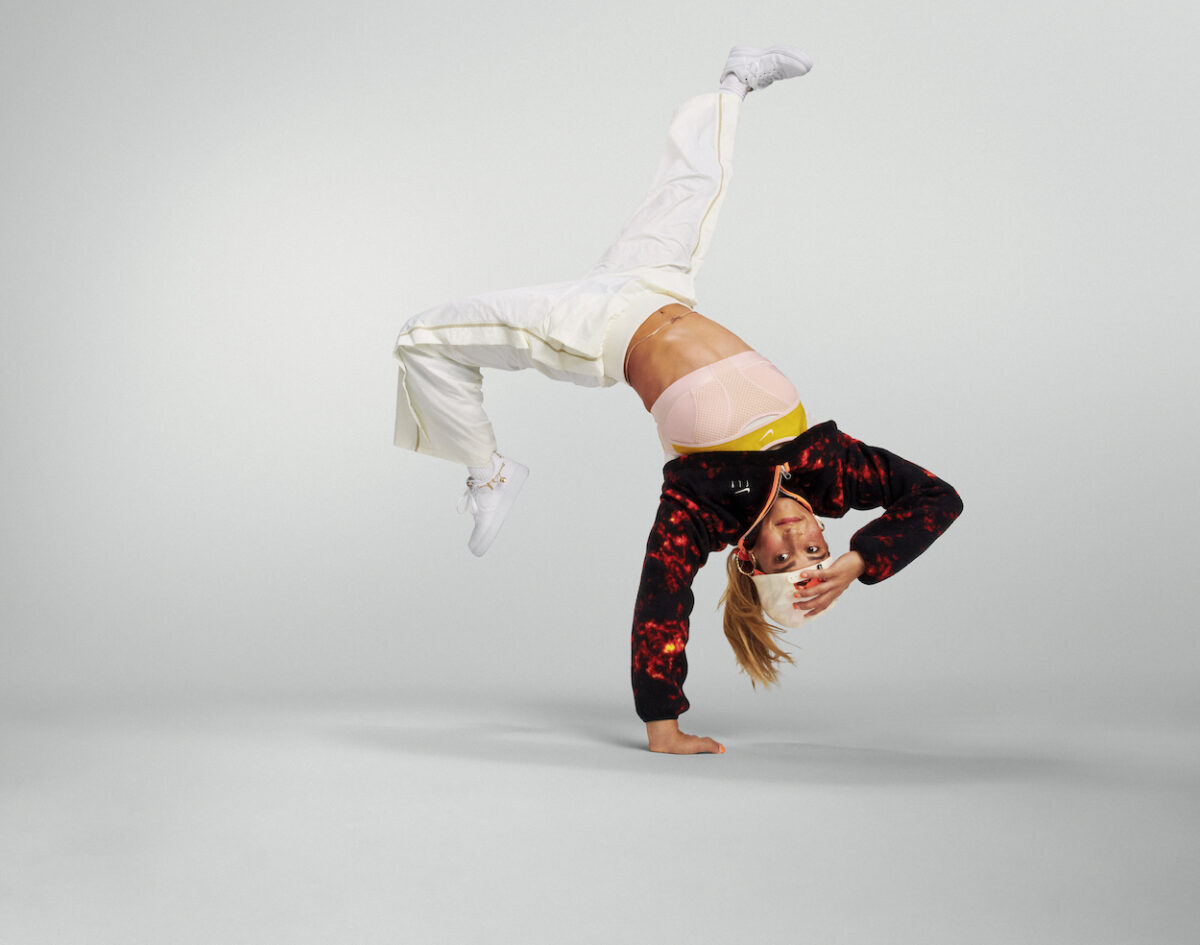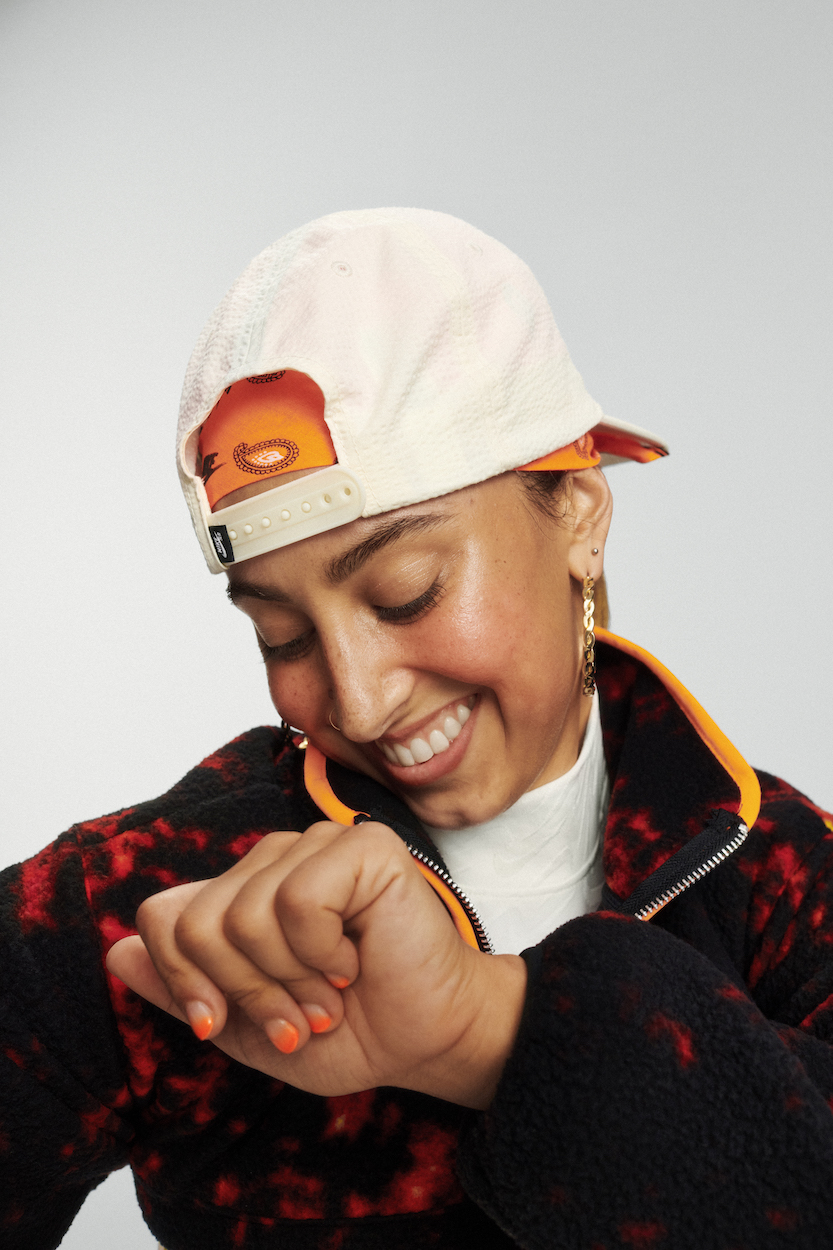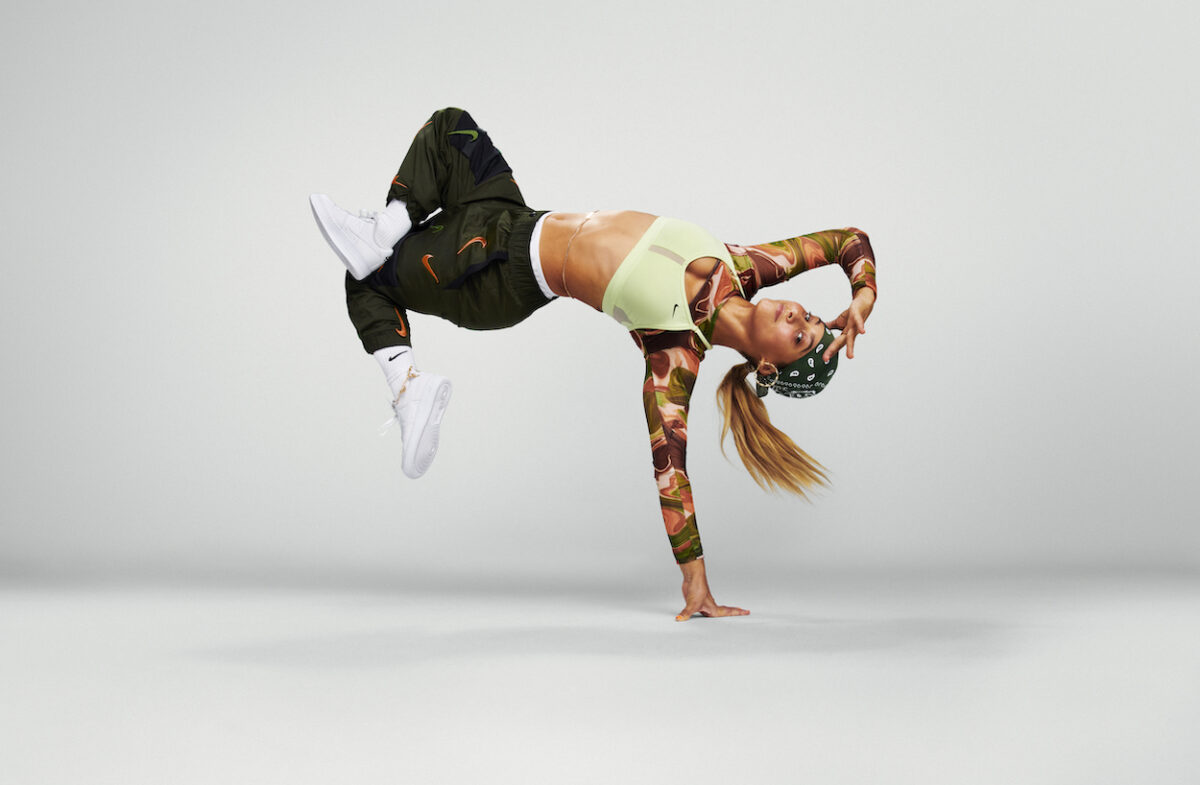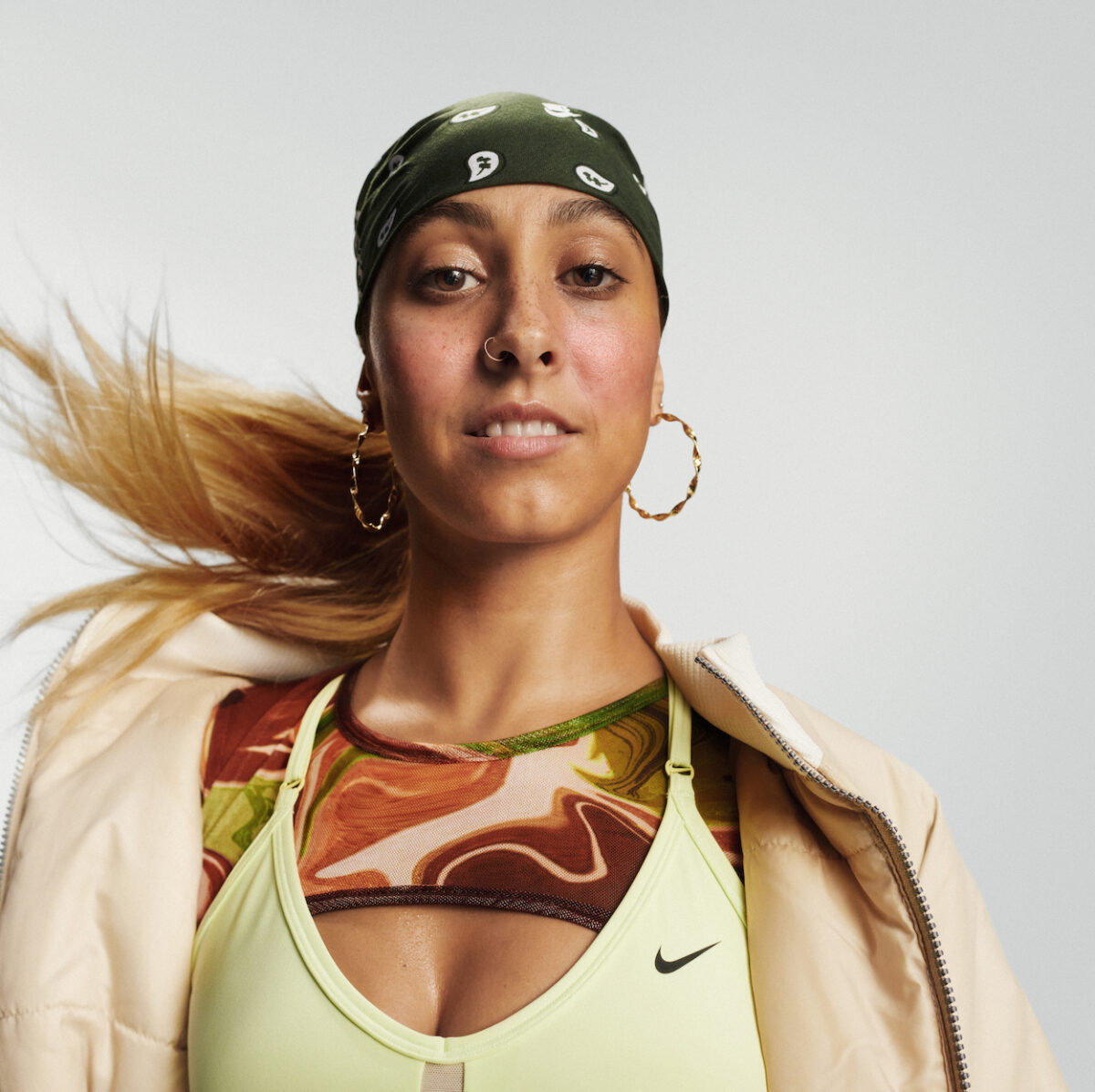A star of the German breakdance scene: Jilou
A star of the German breakdance scene: Jilou

When, how and why did you start with breakdance?
I started in 2006, 15 years ago. I did gymnastics for seven years before, and in this sport, coaches tell you exactly what to do. It felt to me like being trapped in a box , and I didn’t feel comfortable in that box anymore. I needed something more creative, that still had just as much of an athletic aspect.
What was the most beautiful and what was the most painful / difficult experience you can think of as a female in the breaker world?
There is not just that one single experience. The most beautiful thing is when people tell me they started or continue dancing because of me, or that I give them strength and inspiration. Having such an impact on people, is a moment of success for me. This stays forever and touches my heart. Recently, I had a moment where a girl from New York came up to me telling me how she was inspired by me. She was only 12 years old. Inspiring the next generation is the most beautiful thing for me.
And the hardest thing: being a woman in the breaking scene. If someone gives you the feeling not been acknowledged or worthy of being heard. When someone tries to keep you small, and you are not respected. This feeling that you sometimes get, is the most uncomfortable thing I’ve experienced.
What was the biggest lesson you learnt on your way becoming a professional dancer?
We are responsible for handing down lessons learned to a new generation of athletes, and I shouldn’t necessarily expect a thank you for this. For me, it’s rather about the impact of what I put in, the result is the gratitude I get out of it. It’s the concept of ‘Each One Teach One’. Lessons learned are given to a new generation with generosity; what I know, I will now pass on.
Especially in breaking, we have a lot of socially disadvantaged people. Often, they can’t afford joining dance schools. And that’s how it was with me. I trained in clubs, in youth centers. Especially there, the experienced dancers showed me everything and took time for me. Now it’s my turn to share this with the next generation.
What is the strongest power of breakdance?
The strongest power is becoming aware of who you are and how special you are. Dancing is very much about expressing yourself, creating moves no one has created before. I think this gives you a lot of self-confidence, which you not only need in the breaking community, but which you also need to be conscious of in your everyday life. We are all unique, not only the moves. Breaking has helped me a lot in finding and expressing this uniqueness.

How would you describe the role of dance in your life? Has it changed throughout the years?
I wouldn’t say it has changed. It changed for me when I first started dancing – the first three or four years, when it went from, “Is this really something for me?” to “This is my purpose in life.” Now you could describe it like looking through a camera and you put on a filter. This filter is breaking. It determines my circle of friends, how I dress, it determines how I talk. We have our own kind of language. I wouldn’t talk to you now the way I talk within the breaking community. It determines my whole surroundings. But it hasn’t changed throughout the years. I was once asked what would happen if I wasn’t as successful as now? What would happen if I wasn’t on the big stage? Then I thought about what makes me happy. The moment when I really realize I’m just happy and having fun is when I’m in the training room and owning the floor. And nobody can take this away from me, I go to training and do my thing. It has nothing to do with success, it’s just the way it is. Here I can be myself. This is what makes me happy.
Where do you see the biggest challenge of a battle? And what would be your most important advice?
I tend to get extremely nervous sometimes and start to question myself. Especially when I reach this moment I worked so hard for and spent a lot of time and energy on. When these feelings get to me during a breaking battle, I try to focus and remind myself, this is exactly the moment I worked so hard for. I ask myself, “Wait a minute, why am I getting nervous?”. This is exactly what I work for 24/7, the reason why I train every day. To be standing right here in a Final Battle in front of 500 people, and to be facing my opponent.” When you’re at a point where you are almost reaching your goal, you should just close your eyes for a moment and realize this is exactly the moment you’ve been working so hard for.
Do you have daily routines that are really important to you? On both a professional and personal level?
My day is super structured right now. I wake up with a radio alarm, straight with music. This helps me starting the day with positive thoughts. Then I have a beetroot smoothie for breakfast. I try to have an optimal athlete’s breakfast, which is very light, but still gives a lot of energy. Then 3-4 hours of training. And after that, I usually take a break for an hour. Then it’s time for some “future work” – as I like to call it, since I don’t like the word ‘Paperwork’. When this is done, I like to do something where I invest in myself. Like writing in my journal or stretching or meditating. That’s kind of my afternoon/early evening routine. Then there’s dinner. Afterwards a book or movies, just a normal evening. That’s my everyday life.

How do you „charge your battery“?
I am an absolute workaholic. Sometimes, it’s difficult for me to relax. But when I manage it, I like to decorate my apartment for example. Right now, I try to bring a vacation vibe into my home – for example, with a hammock and a palm tree. My decor helps me feel comfortable in my home. Besides decorating, I love to travel and try to go to a country with a beach as often as possible. At the beach I’m not working, not exercising – well, I might do some flips – but it’s about feeling the sun on my skin and the water on my feet. When I’m by the sea I’m completely in that moment.
What are your hopes and expectations for Nike’s campaign and engagement and also your collaboration?
I think there’s so much Nike and I can learn from each other and together I have the feeling, we can make the world a little bit better, especially when it comes to inspiring a new generation of female athletes. I find female empowerment and making young girls feel more comfortable in their skin very important. Nike shares my beliefs in this. I’m inspired by the work Nike does around women. For example, Nike has this campaign with mothers and pregnant athletes. This campaign just resonates with me. I’m in my late 20s, nearly 30 years old, and at the moment I’m thinking a lot about “Do I want to have children? How will I do this as an athlete?” There are a lot of B-moms, how we call them, in our breaking community. And there’s a lot of conversation about this. I have the feeling Nike can support me through different phases of my life.
How do you see the change that needs to happen for a new generation of female athletes?
The Olympics is the best thing that could have happened to female athletes in Breaking. The Olympics ensure fairness by setting certain rules. And this is great, because in terms of gender equality, Breaking still has a long way to go. On one hand, there are less women practicing breaking, on the other hand, we are being given less opportunities. With the Olympics however, we are on a very good path to this no longer being the case. There, men and women are given equal opportunities. But still, we need to be aware that we are still a long way from where we want to be on our path to equality. However, it shouldn’t just be the women taking on the task of always fighting for it, men should advocate for us, too. Even for us women, it is not always easy to recognize when we are not being treated as equals, because we are so used to playing and operating in these roles we are given. We need to get used to the fact this should not be the norm. For example, when we look at prize money, girls sometimes just win a t-shirt while the guys win 1000€. That should not happen nowadays anymore.
With the Olympics coming up, I think we are on a good way and the new generation of B-girls is also incredibly strong. I think if we talk again in 10 years, the breaking scene will be a completely different picture when it comes to equality

What makes a female athlete so strong in your opinion, maybe also compared to a male athlete? Where do you see the biggest difference?
As a woman, you always walk through the world with a certain protective shield and power. If you manage to bring this power into the sport, it can do a lot for you. And when it comes to breaking, it’s also a very emotional sport, a very artistic one, it is very much about expression, about emotions. You can use this superpower here. As an example: at the last training course, it was about bringing more self-confidence into the cypher and showing it – the cypher is the circle in which we dance. I took myself back to the time when I was a young girl walking through Cologne-Kalk wearing this protective shield. My protective shield in this case was my facial expression to show confidence: “I don’t want to be approached by anyone. And if anyone addresses me here, they can brace themselves for something.” I used that moment to go into the Cypher and bring this energy.
What does Nike mean to you personally? Do you remember your very first pair of Nike sneakers?
My first pair of Nike’s were lilac and dark purple Dunks Low, my first shoes from a real brand. I grew up with parents who lived on unemployment benefits. Given that, you don’t necessarily buy a child the most expensive pair of shoes, but I did get my Nike Dunks in lilac. I also got a pair of shoes from my grandma. Since I can remember, she has always been wearing Nike and nothing else. Then in 2006, I started dancing and I think in 2007 Sofia Boutella was in a Nike commercial and she was saying something very motivational. Sophia Boutella was and is also a B-girl – once a B-girl, always a B-girl – and that totally motivated me. You could see there’s a way up, there are opportunities for women. She danced for Madonna, she had a great career and was a huge motivation for me as a person. Her being in that Nike commercial made me think “I want to be a Nike Woman too!”. This was also the moment I built the connection for myself to the brand. I think it was when I was around 15. You’re not at that age anymore where you think, I want to be a princess. But I thought, I’d like to be a Nike Woman. That’s the princess dream for me.
How important is fashion for you as a dancer? And as a breaker: what is important for you in terms of clothing when you dance, both on a functional but also on an esthetic level?
Fashion generally plays an incredibly big role in hip-hop. There are even juries, who judge the battle according to the outfit. If I don’t feel fresh, I can’t dance well. If I wear colors, which don’t match, I feel uncomfortable. But my outfit also must be very functional. Pants that aren’t stretchy or don’t move well on the skin will rip or restrict me. I slide a lot on the floor. So, I must make sure I find the right shoes that work with my breaking style. It’s super important that the shoes don’t have any weak spots, otherwise they break quickly. I prefer to dance with white sneakers, they make me feel the freshest. Preferably leather, because you can wipe everything off very quickly, so they look nice and stylish again.
What are your expectations for the 2024 Olympics? What might be the biggest challenge and what do you hope to be the biggest outcome and change for you personally but also for a generation of female breaker?
I have a good feeling about the Olympics. I think there’s a need for us to express ourselves authentically on stage. A lot of work is being done right now to give the jury system not only a sporty aspect, but also an artistic one. In the end, it’s not important who did the hardest move as many times as possible, that I spun 10 rounds on one hand or just one. It’s about how I used this move itself. That’s just the artistic aspect which I expect not going to be lost.
Then, of course, there’s the connection to music. I want a certain spontaneity to be preserved, that you don’t see dancers preparing choreographies beforehand, like in gymnastics. The good thing is, we don’t know what music will be playing. We are not told beforehand. We have to react very spontaneously. Sure, we dance to a 4/4 beat or eights, you can count the music and adjust your turns to the counts. But I hope this won’t happen. There should be the possibility to react spontaneously, to communicate with the opponent, so it doesn’t become mechanical, but remains an art and a dance.
I want to win. The Gold medal is my goal. I was a gymnast and since I was 6 years old, I dreamed of taking part in the Olympics. It’s definitely not an easy road. And in the end, it’s also a question of how to evaluate art. Is Picasso better than van Gogh? One will never be able to say. They both used canvases, which is the floor for us. However, they bring something completely different to the canvas than the other. Maybe one has worked out a more beautiful image in this moment – that’s exactly this snapshot we also have when dancing – and yet you can’t say either one is the better artist. And I think that’s the difficulty with breaking. We have not only the athletic factor, but also the artistic factor. It’s hard to really predict who’s going to win at this exact moment. But I’m not going to stop training and working on myself as an artist.
The goal is gold.
Interview: Sina Braetz
Credit: Nike / Jilou